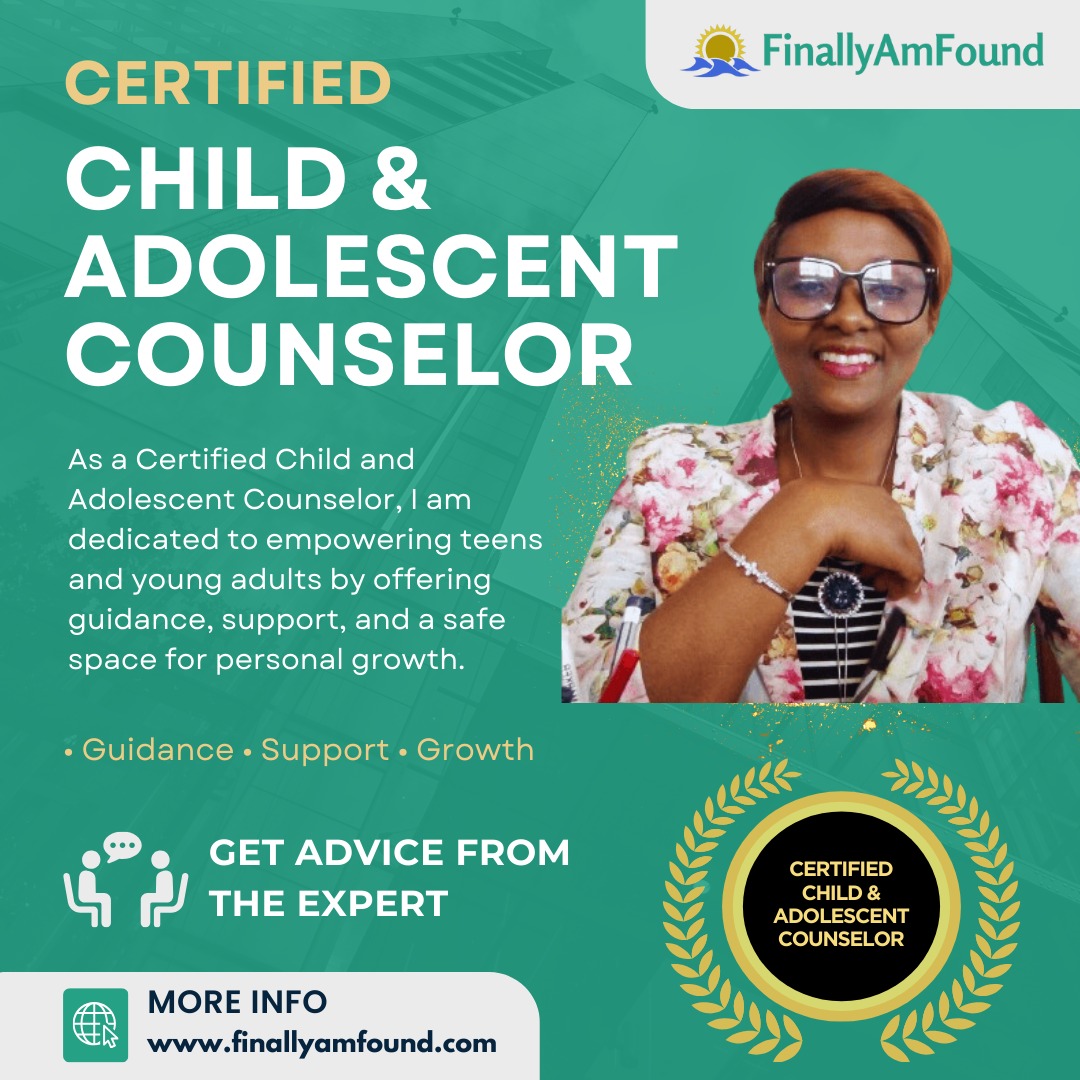Understanding and controlling emotions, also referred to as emotional management or regulation, is crucial in various contexts, such as social media and face-to-face interactions. Mastering emotions involves the capacity to comprehend, control, and react to one’s own emotions in a positive and productive manner. Furthermore, it entails the ability to comprehend and appropriately respond to the emotions of others. This encompasses self-awareness, self-regulation, and social awareness, all of which are integral to emotional intelligence.
This skill is worth learning and can be developed through practice. It involves recognizing, understanding, and effectively managing and expressing your emotions to navigate life’s challenges, maintain well-being, live a meaningful life, and foster healthy relationships. To achieve this, you should be able to:
- Identify and label your feelings: Accurately recognize and name the emotions you are experiencing.
- Express your emotions appropriately: Communicate your feelings in a healthy and constructive way.
- Manage your emotions effectively: Regulate your emotional responses to prevent them from overwhelming or controlling your behavior.
- Understand the emotions of others: Empathize with and understand the feelings of others.
Developing Self-Awareness
Mastering emotions involves a combination of self-awareness, regulation, and intentional action. Here’s a breakdown of key steps that can guide you through this process:
To develop self-awareness, it is imperative to observe and comprehend one’s emotional responses in various situations. This entails recognizing the impact of specific circumstances, individuals, or surroundings on one’s emotional state. Regular self-reflection aids in comprehending the triggers behind emotions such as anger, fear, anxiety, and joy.
Maintaining a journal or engaging in mindfulness practices (being fully present in the moment, without judgment. It involves paying attention to your thoughts, feelings, and sensations without getting caught up in them) facilitates the process of identifying emotional patterns and gaining a deeper understanding of your emotional landscape. By documenting or contemplating instances that evoke intense emotions, you can effectively discern recurring patterns and attain valuable insights into your emotional experiences.
Identifying Emotional Triggers
A critical part of mastering your emotions is understanding what sets them off. Whether it’s specific circumstances, people, or even self-imposed expectations, pinpointing these triggers will help you predict and manage emotional responses.
Make a list of recurring emotional triggers. The next time you’re in one of these situations, prepare mentally to respond more thoughtfully.
As soon as you feel an emotion rising, identify it. Is it anger, sadness, frustration, or something else? Take a moment to acknowledge the feeling. You might say to yourself, “I’m feeling anxious right now.” For example, before reacting to a post or comment, take a moment to identify your feelings. Ask yourself, “Am I feeling angry, jealous, or anxious right now?”
Learn to Pause Before Reacting
One of the most effective ways to gain control over your emotions is learning to pause when you’re emotionally triggered. This prevents you from reacting impulsively and gives you time to assess the situation more clearly.
When you feel intense emotions rising, count to ten, take a few deep breaths, or step away from the situation for a moment. Take a few deep breaths—inhale deeply through your nose, hold for a moment, and exhale slowly through your mouth. This helps calm your nervous system and gives you space to think. This brief pause allows your rational mind to catch up with your emotional response.
Practice Emotional Regulation
Regulating emotions involves managing them in a healthy way rather than suppressing them. You can achieve this through relaxation techniques, mindful breathing, or other coping strategies that help to calm your emotional state. Experiment with techniques like deep breathing, progressive muscle relaxation, or guided meditation when you’re feeling overwhelmed. This is particularly helpful after a long day when you want to decompress and get rid of the lingering effects of unwanted emotions. Develop a “toolbox” of strategies you can use in various situations.
Reframe Negative Thoughts
Emotional mastery often involves changing how you view negative events or emotions. By reframing a situation—seeing it from a different perspective—you can reduce its emotional impact.
When faced with a setback, ask yourself, “What can I learn from this?” or “How can this help me grow?” Shifting your mindset can help you view challenges as opportunities. For example, if you are directed by traffic police to make a detour because the road ahead is under construction and you want to reach work on time, but the detour is long, just relax and enjoy the scenery. At least you get to explore new places or visit areas you haven’t been to in a while, instead of focusing on how long the road is and how late you will be for work.
Develop a Gratitude Practice
Develop a gratitude practice to keep your focus on what’s going well in your life. This helps counterbalance negative emotions and fosters a positive outlook. For example, if you’re feeling overwhelmed by a challenging project and notice that some classmates seem to excel while you’re struggling, it can be easy to focus on your frustrations and feel discouraged. Instead, you can choose to reframe the situation by recognizing the skills and efforts of your classmates as motivation. You might say to yourself, “I admire their hard work, and I can learn from them.” To cultivate this optimism further, start a gratitude practice where you jot down three things each day that you’re thankful for, such as supportive friends, a teacher who is willing to help, or even small successes in your project. By focusing on these positive aspects, you can counterbalance feelings of inadequacy and foster a more positive outlook, ultimately enhancing your resilience and motivation in challenging situations.
It’s about recognizing that emotions, like circumstances, are temporary, and that you have the power to manage them.
Build Emotional Resilience
Resilience is your ability to recover from emotional setbacks and bounce back from adversity. It involves viewing challenges as part of growth rather than letting them weigh you down emotionally. By developing the skills and strategies to navigate and recover from difficult experiences, you become more resilient.
When encountering difficulties, practice self-compassion. Acknowledge that setbacks are part of life, and focus on problem-solving instead of dwelling on what went wrong.
Communicate Your Feelings Clearly
If you need to express your feelings, do so clearly and calmly. Use “I” statements to express how you feel. For instance, “I feel overlooked when my ideas aren’t acknowledged,” instead of blaming others. Use respectful language if responding to a disagreeable comment. For instance, say, “I see your point, but I feel differently because…” Decide if you need to take action based on your assessment. If you’re tempted to comment or react negatively, think about whether that reaction will add value or resolve the situation. Consider options like ignoring the post, unfollowing the person, or responding constructively.
If a specific account or type of content is consistently making you feel bad, consider unfollowing or muting that account to protect your emotional well-being. Choose peace over the rest.
If you need to resolve an issue, do it calmly. If it’s a situation you can’t change, focus on what you can control—like your reaction.
Establish Boundaries
Protecting your emotional energy means knowing when to say no or distance yourself from emotionally draining situations or people. Setting clear boundaries is essential for maintaining control over your emotional environment.
Practice asserting your needs with others. Politely but firmly communicate your limits, whether in social, professional, or personal contexts.
Develop Empathy Without Losing Balance
Empathy is crucial for emotional mastery. Being empathetic involves understanding and valuing others’ emotions without letting their feelings overshadow your own emotional well-being. It’s important to maintain a balance—offering compassionate support without losing yourself in their emotions.
For example, if a sibling is struggling with job loss and frequently expresses feelings of frustration and anxiety, you can practice active listening by giving them your full attention and responding with understanding, saying, “I can see how stressful this is for you.” However, it’s essential to maintain your emotional boundaries. If their worries begin to weigh heavily on you, it’s okay to set limits by saying, “I’m here for you, but I also need some time to focus on my own well-being.” You can gently encourage them to explore solutions or seek professional support while ensuring you engage in self-care activities afterward, allowing you to support your sibling without becoming overwhelmed by their emotions.
Embrace Patience in Uncertainty
Emotional mastery includes being able to sit with uncertainty or discomfort without impulsively reacting. Practicing patience allows you to tolerate difficult emotions and wait for the right moment to act.
In moments of frustration or uncertainty, remind yourself that things take time. Avoid making hasty decisions driven by anxiety or pressure. In the practice of patience, you may discover the power of stillness. Instead of rushing to fill the silence with words or actions, allow yourself to simply be. This stillness can reveal underlying truths and guide you toward wiser responses. Embrace the discomfort that comes with uncertainty; it is often in these moments that we learn the most about ourselves and our capacity to cope.
Take Accountability for Your Emotions
Recognizing that you are responsible for your emotions—not external events or people—is a key step in emotional mastery. You have control over how you choose to respond.
When you feel emotionally charged, stop and reflect on your role in the situation. Take ownership of your reactions, and avoid blaming external factors for your emotional state.
Strive for Inner Peace
Mastering your emotions can help you experience a sense of inner calm, even during turbulent or chaotic times. Achieving this involves regularly tending to your emotional well-being and adopting habits that help you stay centered and grounded.
When encountering negative social media comments, ask yourself questions such as, “Why does this affect me?” or “Is this person’s viewpoint truly worth my emotional investment?” Why should I adopt their opinion as my own? Their life is not mine. I am the sole architect of my life journey.
Engage in Bible verse meditation to contemplate God’s intentions for human character and proper behavior. Incorporate mindfulness practices or regular time spent in nature to uphold emotional equilibrium. Foster the habit of self-reflection to nurture enduring inner tranquility. By practicing these steps consistently, you will gradually develop greater control over your emotions, fostering self-awareness, resilience, and emotional intelligence.
Characteristics of Emotional Mastery
Calm Under Pressure
You stay composed and level-headed in stressful or chaotic situations, focusing on thoughtful responses instead of emotional reactions.
During a group project at university, with the deadline just hours away and the group behind on work, while others panic, you remain calm, organize the team, and delegate tasks effectively. Your composure helps everyone stay focused and complete the project without unnecessary stress.
In a work crisis, when a project is falling behind schedule and most people panic, someone who has mastered their emotions remains calm, assesses the situation objectively, and focuses on solutions rather than getting caught up in the stress.
Self-Awareness
You are highly attuned to your emotions, recognizing why you feel a certain way and understanding the underlying causes.
For example, after a long day of lectures and part-time work, you feel irritated when your roommate asks for help. Instead of lashing out, you recognize that your frustration isn’t about them but is because you’re stressed and tired. You take a moment to unwind and then communicate your needs clearly.
Emotional Resilience
You bounce back quickly from disappointments and use challenges as opportunities for growth, without letting negative emotions linger.
For instance, you applied for your dream internship but got rejected. While you’re initially disappointed, you decide to view it as a learning experience. You update your resume, seek feedback, and apply for other internships with a positive outlook, knowing that one setback won’t define your future.
Healthy Boundaries
You know when to distance yourself from toxic people or situations that cause unnecessary emotional stress, protecting your emotional well-being and prioritizing peace of mind.
For example, a friend often asks for your emotional support but never reciprocates. Rather than feeling obligated or overwhelmed, you explain that you need space to recharge and can’t always be available. By setting this boundary, you protect your energy without guilt.
Empathy and Understanding
You can listen to others with compassion and understand their emotions without letting their feelings overwhelm or manipulate your own emotional state.
For example, your best friend is going through a difficult breakup and needs someone to talk to. Even though you’re dealing with your own issues, you listen attentively and offer support without making the conversation about you. You maintain empathy while managing your own emotions.
Patience
You can tolerate discomfort, frustration, or uncertainty without becoming reactive or making impulsive decisions. This also means refraining from expressing negative sentiments toward yourself and others due to frustration, recognizing that words have power.
For example, you’re waiting to hear back from a job application, and the process is taking longer than expected. Instead of sending anxious follow-up emails or making hasty decisions to apply for random jobs, you trust the process, pray, remain patient, and focus on improving your skills in the meantime.
Positive Outlook
You maintain an optimistic perspective even during difficult times because you understand that emotions are temporary and manageable.
For example, after failing an important exam, you feel discouraged but don’t allow it to define your self-worth. Instead, you view the failure as a learning opportunity, plan better study strategies, and believe you’ll improve next time. You stay hopeful and motivated.
You are more forgiving, letting go of negative emotions—not to condone harmful behavior, but to free yourself from the burden of resentment.
Effective Communication
You express your feelings clearly and assertively without aggression or passive behavior, and you listen to others without becoming defensive or interjecting.
For instance, your significant other cancels plans frequently, and it’s starting to make you feel undervalued. Instead of bottling up your frustration or making passive-aggressive comments, you calmly explain how it affects you and suggest better communication moving forward.
Accountability
You take responsibility for your emotions and reactions, understanding that external events don’t control your feelings—your response does.
For example, you procrastinated on an important assignment and missed the deadline. Instead of blaming external factors or making excuses, you acknowledge your mistake, apologize to your professor or employer, and commit to better time management in the future.
Inner Peace
You maintain a sense of calm and stability within yourself, even when external circumstances are challenging because you have control over your emotions.
While many of your friends are getting job offers or entering serious relationships, you feel like you’re still figuring things out. Instead of feeling anxious or comparing yourself to them, you remain at peace, knowing that everyone’s path is different and yours will unfold in its own time.
Benefits of Mastering Your Emotions
- Improved Mental Health: Mastering your emotions helps you develop better coping mechanisms for stress, anxiety, and depression. By learning to manage your emotions, you’ll be able to reduce feelings of overwhelm, improve your mood, and develop a more positive outlook on life.
- Better Relationships: When you master your emotions, you become more empathetic and understanding towards others. You’ll be able to recognize and respond to the emotional needs of those around you, leading to deeper, more meaningful connections and stronger relationships.
- Increased Confidence: By learning to manage your emotions, you’ll develop a greater sense of self-assurance and confidence. You’ll be more likely to take risks, speak your mind, and pursue your goals and dreams without being held back by fear or self-doubt.
- Enhanced Self-Awareness: Mastering your emotions requires you to develop a deeper understanding of yourself, including your values, strengths, and weaknesses. By learning to recognize and manage your emotions, you’ll gain a greater sense of self-awareness that will help you make better decisions and live a more authentic life.
- Improved Decision-Making: When you’re in control of your emotions, you’ll be able to make more rational, informed decisions that align with your goals and values. You’ll be less likely to act impulsively or make decisions based on emotions and more likely to think critically and make choices that support your well-being.
- Better Time Management: By learning to manage your emotions, you’ll be more focused and efficient with your time. You’ll be able to prioritize tasks, avoid distractions, and make the most of your time, leading to greater productivity and a sense of accomplishment.
- Increased Resilience: Mastering your emotions helps you develop a greater sense of resilience and adaptability. You’ll be better equipped to handle setbacks, failures, and challenges, and more able to bounce back from difficult situations.
- Enhanced Creativity: When you’re in control of your emotions, you’ll be more open to new experiences, ideas, and perspectives. You’ll be more likely to think outside the box, take risks, and explore new possibilities, leading to greater creativity and innovation.
- Improved Physical Health: Chronic stress and anxiety can have serious physical consequences, including high blood pressure, heart disease, and a weakened immune system. By learning to manage your emotions, you’ll reduce your risk of these health problems and enjoy better overall physical health.
- Greater Sense of Purpose: Mastering your emotions helps you connect with your values, passions, and long-term goals. You’ll be more likely to live a life that truly reflects who you are, pursue your dreams, and feel a sense of purpose and fulfillment.
- Becoming a Better Version of Yourself: Mastering emotions leads to constant growth and development in all aspects of life, allowing you to avoid mediocrity.
Prayer for Emotional Mastery
Dear Heavenly Father,
May I find the strength to understand my emotions, the wisdom to respond with care, and the patience to remain calm through uncertainty. Help me navigate my feelings with compassion, both for myself and others, while staying grounded in Your peace, so that I may navigate life’s challenges with wisdom and poise. As I walk the path of emotional mastery, illuminate my journey with patience, understanding, and love. May I emerge stronger and wiser, and may I share this gift with others, creating a ripple of harmony in the world. Thank you for making me Your masterpiece.
In Jesus’ name, I pray, Amen.
Hey, I’m Angeline, your RN and founder of Finally Am Found. With a heart for mentorship, I’ve been guiding teens and young adults since 2017. As a Registered Nurse, I blend medical expertise with personal experiences to create a Christ-aligned space for self-discovery. Connect with Angeline on Facebook and let the journey to self-discovery begin!
















